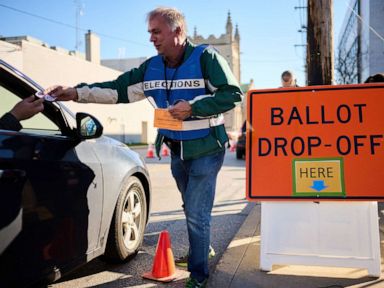
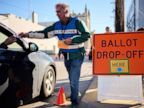

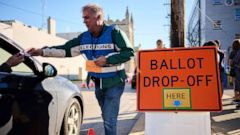
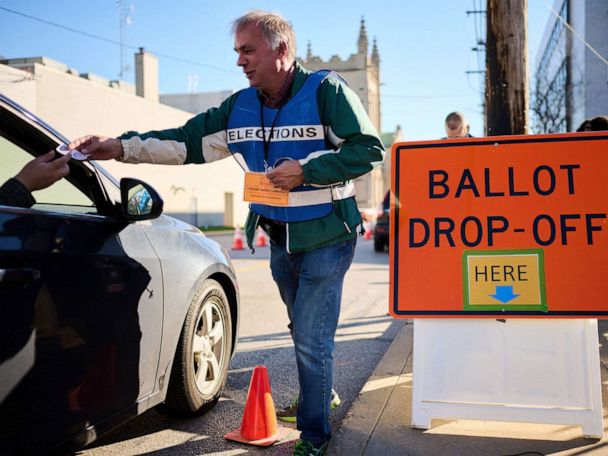
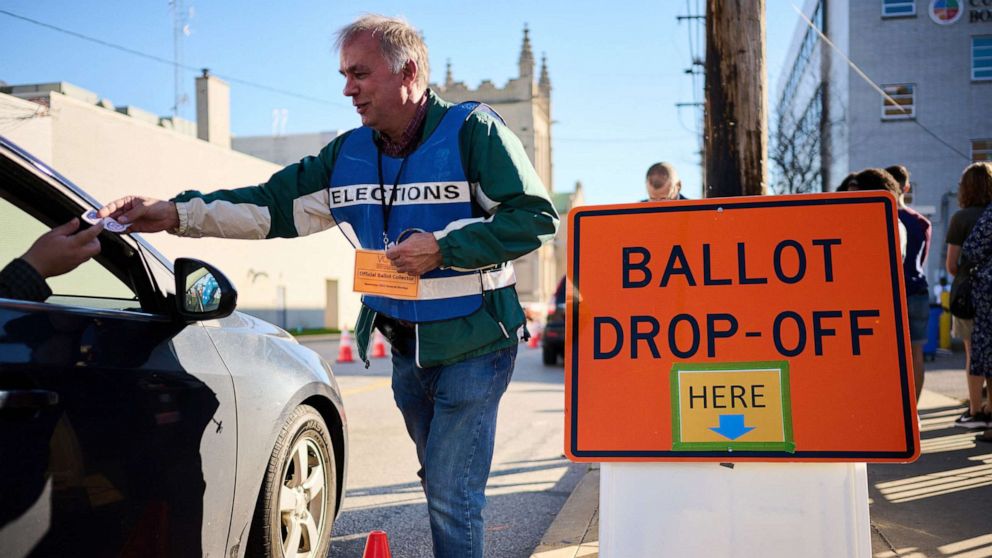
Polling places across the country will be bustling with crowds of voters on Election Day, Nov. 8. It can be easy to get confused or lost in the frenzy.
Here’s what voters should know to help get through the day smoothly.
How to vote
It’s recommended that voters check local election websites, or resources from the National Conference of State Legislatures, to know what the rules of Election Day are for their state and region.
Firstly, the FBI warns of possible scams and bad faith actors that may target voters with inaccurate election dates, false voting qualifications and methods and more.
Election Day is always the first Tuesday after November 1, this year’s date is November 8.
There is no option for the general public to vote online or by text, the FBI confirms on its website.
To vote on Election Day, you must go to your designated polling place. You can find where your polling place is located by putting in your home address in poll locators on websites including Vote.org, Google.com or on your local elections website.
If you’re in need of an accommodation for a disability or need help with voting using a minority language at your polling site, your polling place will likely offer special assistance, according to the U.S. Election Assistance Commission. The agency recommends contacting your local elections office for details.
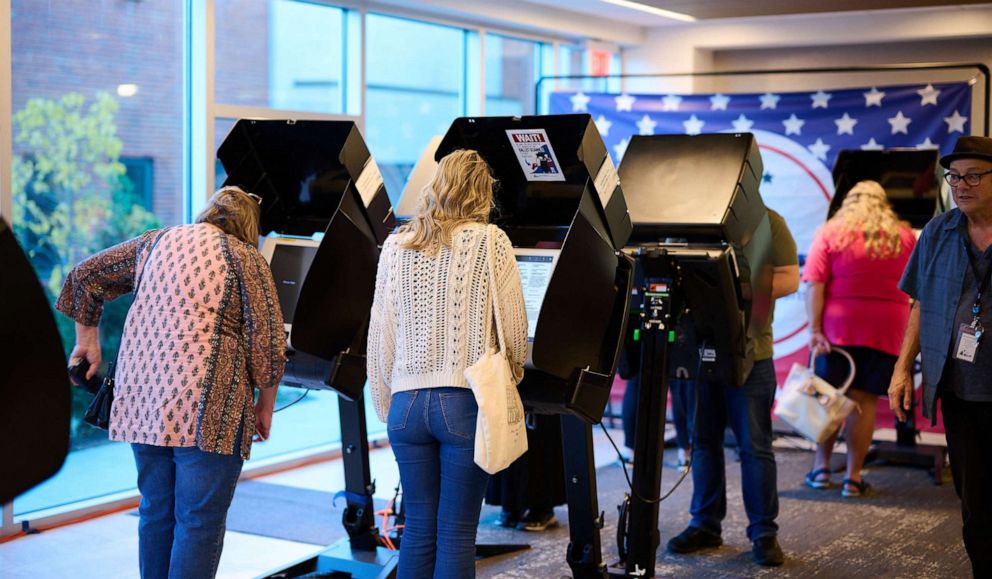
Voters cast their ballots at the Lake County Board of Elections headquarters in Painesville, Ohio, on Nov. 6, during early voting for the 2022 midterm elections.
Dustin Franz/AFP via Getty Images
“Contact your local elections office for advice, materials in a specific language, information about voting equipment, and details on access to the polling place, including parking,” the agency states.
Local voter guides can help voters stay informed on who is on the ballot, what the candidates are advocating for and what ballot measures will be up for vote at election time. Your local voters guide can likely be found on your local election’s website or at VOTE411’s Personalized Ballot guide search. Sample ballots are also handy for knowing who and what is on the ballot.
USAGov, a federal service that curates government information, recommends bringing notes, a voter’s guide or a sample ballot with you into the voting booth – this is allowed, so voters can be sure of their choices for candidates and ballot initiative options.
However, some polling places may restrict the use of cellphones, so USAGov recommends bringing paper copies instead of using notes on your phone.
Many states won’t require you to bring your voter registration card to the polls, however the majority of them do expect some form of identification to vote in person.
The laws may have changed in recent years, so it’s recommended that voters check local elections rules on restrictions and identification.
Don’t forget your rights
The American Civil Liberties Union advises voters that if the polls close while you’re still in line, stay in line.
They say that many Election Day snafus should be remedied quickly – if a mistake is made on your ballot, you can ask for a new one and if the voting machines are down at your location, you are allowed to ask for a paper ballot.
If a poll worker says that a voter’s name is not on the list of registered voters, the ACLU recommends that voters ask the poll worker to double check the spelling of their name. The organization also recommends double checking that the voter is at the correct polling place.

An official ballot collector for the Cuyahoga County Board of Elections gives a voter their “I Voted” sticker after depositing their mail-in ballots into a collection box in Cleveland, Nov. 6, 2022, ahead of the midterm elections.
Dustin Franz/AFP via Getty Images
If a poll worker still cannot find your name or if you cannot travel to the correct polling place, ask for a provisional ballot. Voters are entitled to a provisional ballot even if they aren’t in the poll book, ACLU states.
Election officials will investigate whether you are qualified to vote and registered – if you are, your provisional ballot will be counted.
If you are turned away or denied a provisional ballot, the ACLU recommends reporting the experience to local election officials or calling the Election Protection Hotline.
The hotline is run by the Lawyers’ Committee for Civil Rights Under Law in case voters run into any issues on Election Day.
The hotline is available in several different languages – English, 1-866-687-8683; Spanish: 1-888-839-8682; Arabic: 1-844-925-5287; For Bengali, Cantonese, Hindi, Urdu, Korean, Mandarin, Tagalog, or Vietnamese: 1-888-274-8683.
What voter intimidation looks like
“The goal of voter intimidation, on the other hand, is to deter or influence voting activity through threats to deprive voters of something they already have, such as jobs, government benefits, or, in extreme cases, their personal safety,” states the U.S. Department of Justice in a 2017 report.
Voter intimidation is a civil rights violation and it is illegal.
“Voter intimidation can vary and the federal and state protections are broad for that reason, seeking to protect voters against a number of different ways that voter intimidation could arise.” said Katie Friel, a fellow in the Brennan Center’s Democracy program. “For nearly all voters, it will be a calm and uneventful Election Day.”
A Georgetown Law fact sheet states that voter intimidate can look like: violent behavior in or near a polling site, verbal or physical threats of violence, confrontations with voters while wearing official-looking uniforms, harassment, spreading false information about voting requirements or methods, and more.
If you see or experience voter intimidation, the ACLU urges voters to notify local election officials, document what you experienced, and call the U.S. Department of Justice Voting Rights Hotline at 800-253-3931 or the Election Protection Hotline.
The FBI asks that voters “help defend the right to vote by reporting any suspected instances of voter suppression” to a local FBI field office or at tips.fbi.gov.
If voters fear imminent violence, the ACLU recommends calling 9-1-1.

